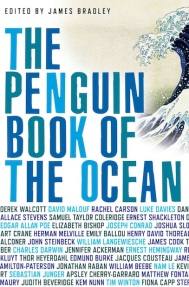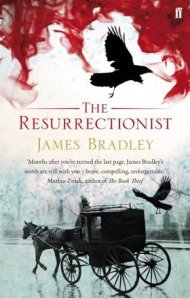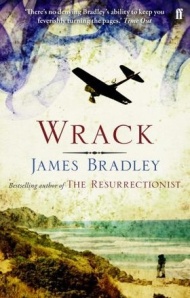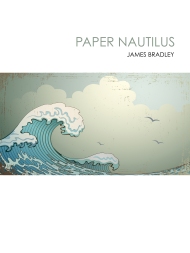Chapter One: Solstice
As Adam steps outside the cold strikes him like a physical thing, the shock still startling after all these weeks. For a moment he pauses, looking out across the bay, the crowding floes of ice. Then, adjusting his goggles, he descends the short ramp to the scoured stone upon which the building stands and strikes out towards the headland.
It is quiet out here today, the only sounds that disturb the silence those of the wind, the occasional squalling cry of the birds. Down by the water an elephant seal lies on the rocks, its vast bulk mottled and sluglike; around it tracks of human activity scar the snow like rust, turning it grey and red and dirty.
In the building behind him the other personnel are celebrating the solstice, an occurrence those stationed here have long observed with an extended meal and drinking and dancing. The event is a way of marking not just the date but the peculiar rhythms of life at the base, the annual cycle which means that from here on the arrivals will slow and departures increase, until only the skeleton crew who maintain the facility through the months of cold and darkness remain.
Passing the Klein-blue boxes of the power distribution units he finds himself wondering again about this tradition. Humans have observed the solstice for tens of thousands of years, but are those festivities truly celebrations, or something more ambivalent? Symbols of loss, of the running down of things? After all, the solstice also marks the beginning of summer’s end, the first intimation of the year’s long retreat back into the dark.
Beyond the last building the land opens out, the dirty grey of rock and mud and melting snow giving way to the white glare of ice. The wind is stronger here, and even colder, but he does not slow or turn aside; instead, closing his hand around the phone in his pocket, he shrugs his neck deeper into his collar and quickens his step.
Back in Sydney it is just after one, and Ellie will be in the waiting room of the clinic. He can picture her seated in the corner, on the couch she always chooses, trying to concentrate on her tablet or flicking through a magazine. Normally she would not be there alone, but before he left they agreed she would continue the treatment while he was away, a decision he tried not to take as a sign his presence was no longer really needed.
Today’s appointment is the last for this cycle and in many ways the only one that matters. For while over the past fortnight Ellie has been to the clinic almost daily, initially for hormone injections, then later for the extraction of the ova and the implantation of the fertilised embryos, it is today that they will take her blood one last time and tell her whether the process has succeeded.
They have been here before, of course. once a month for the best part of two years the two of them have sat in that office and watched the gynaecologist purse her lips and assume the mask of bland concern she uses to deliver the bad news; once a month for the best part of two years he has reached out to take Ellie’s hand as she nods and thanks the gynaecologist, the only sign of her distress the stiffness with which she holds herself, the care with which she finds her way to her feet and back to the waiting room.
It often seems strange to him that they have ended up here. Six years ago, when he and Ellie met, the idea of children seemed impossibly remote, the question of whether he might one day want them so removed from his life as to be irrelevant.
Even after all that has happened, the fact of their meeting still seems miraculous to him, a gift. Ellie was at art school, preparing an installation about botanical biodiversity. Looking for images, she contacted the university and was referred to Adam’s supervisor, who in turn passed her request to Adam’s officemate. Finally, fortuitously, it was passed to Adam herself.
Deep in the final months of his doctorate, he really only scanned the request, then, after making a note about meeting her a few days later, forgot about it so completely that when he arrived at his office to find her seated on the chair under the window he didn’t realise she was there for him.
She was dressed in a short skirt, leggings and boots, her dark hair pulled back in a loose ponytail, although it wasn’t her outfit that caught his attention at first, but the clarity and directness of her gaze, the ease with which she seemed to inhabit the space around her. Aware she seemed to be expecting him, he stopped and half turned towards her.
‘Adam?’ she said. ‘I’m Ellie.’
He smiled back, aware she could see he didn’t know who she was.
‘From the College of Fine Art? You told me to come by?’
‘Yes,’ he said as it came back to him in a rush. ‘I’m sorry, I’d forgotten.’
‘If now’s not a good time . . .’ But he waved her down.
‘No, now is fine. Just let me get the door open.’
Inside, while he started up his computer, she leaned towards the card pinned to the wall above it, a nineteenth-century drawing of a radiolarian. Rendered in careful pen and ink, its sea-urchin-like form had the delicate perfection of a jewel.
‘It’s Haeckel, isn’t it?’ she said, as much to herself as to him.
He glanced up. ‘It is. How did you know?’
She smiled. ‘I’ve spent a lot of time looking at the period.’
Leaning over he reached for the card, traced the outline of the image with his finger. ‘Is this the sort of thing you’re after?’
‘Perhaps. I’m interested in the different ways we perceive and represent plants and animals, the way encountering those representations can sometimes be like glimpsing a lost world, all of its own.’
Intrigued, he studied her for a moment. Then he stood up. ‘Let me see what I can help you find.’
Over the next two hours he showed her through the various collections held by the department, increasingly delighted not just by her interest but by the quality of her attention, the care with which she considered each new document or specimen. And so it was unexpected when, as they neared the end of the tour, she turned to him and asked, ‘Doesn’t it frighten you?’
‘Doesn’t what frighten me?’
‘That these sorts of collections might be all we have left?’
The truth was it terrified him, but he knew no way of giving that fear expression without it overwhelming him. So he just nodded. ‘Better we have a record of what’s lost.’
in the days that followed they began to correspond by email, her requests for further information and his ideas about other specimens and images that might interest her quickly taking on a playful intimacy, until late one evening, a fortnight after that first meeting, she suggested he meet her at an exhibition the next day.
He was surprised when he first saw her walking towards him. After two weeks chatting online she seemed different: smaller, less perfectly composed. Although she moved with the same confidence, in the light outside the gallery her pale skin was more battered than he remembered, scattered here and there with freckles. Later he learned that she had the same reaction, that like him she had found speaking in person awkward at first, the immediacy of their online friendship replaced by an uneasy combination of familiarity and unfamiliarity.
The exhibition was by a Japanese artist – delicate forms carved from wood and shell and metal poised midway between the biological and the mechanical, that seemed simultaneously ancient and exquisitely modern. Some resembled the skeletons of mammals or birds or fish, others less easily categorised creatures with sleek carapaces of burnished timber, or shimmering skeins of mother-of-pearl, like refugees from the ancient oceans of the Cambrian, or perhaps some strange future in which matter itself had taken on life and inscrutable purpose.
Astonished by their beauty, confused by their alienness, Adam wandered from one to the next, barely speaking. At one point he glanced at Ellie and, catching her watching him, smiled, the fact of her presence suddenly marvellous to him, his delight amplified when she smiled back.
Later, over coffee, he found himself telling her things he had not spoken about to anyone, unravelling the tangle of his feelings about his friend Vann’s death the year before, his sense that his doctoral research had gone somehow off course. She in turn revealed details about herself. About losing her mother as a teenager, her attempts to erase herself in the aftermath; about her father and his second, much younger wife, and Ellie’s dislike and suspicion of their relationship, her sense that she was the wrong woman for him.
And when the day was done and they were parting, she leaned in and kissed him, her hands against his chest, the gesture so direct, so certain, that for a moment or two he was too startled to respond. Sensing his hesitation she pulled back, waiting for him to recover himself, and then she was kissing him again, deeper this time.
What is most remarkable to him now about those early days is how easy it was, the way they just seemed to mesh. Even the sex, when it happened, was without tension or uncertainty, although not without passion. Within a week they were sleeping together, within a month he was living with her in the old garage she rented in Marrickville, the two of them already like old friends save for the urgency of their physical relationship, the wonder of each other’s bodies.
Their first year passed almost without them noticing. He worked on his thesis, huddled over his laptop at a desk under the high windows, while she wrote and modelled her creations on her computer. Unlike many of her contemporaries she was prepared to farm work out, to employ Chinese and Indian and Pakistani programmers to build the things she imagined, leaving her to concentrate on the larger picture and on the music.
towards the end of their second year together she received her first commission as part of a festival in Singapore; less than a week later Adam was offered a position in a new multidisciplinary research group. And so, though neither was quite sure how it happened, they found themselves a couple with careers and a future.
At the same time it became clear that the social landscape around them was changing as well, as friends married or entered into commitment ceremonies of one kind or another. They discussed doing something similar but neither of them saw the point, and once they’d bought their first apartment it hardly seemed relevant.
But then, in the winter of their third year together, Ellie’s friend Holly collapsed outside a café on King Street. Helped to her feet by strangers, she was taken to hospital and diagnosed with a brain tumour. A week later she was dead.
In the days afterwards, Holly’s friends rallied together, trying to make sense of her sudden absence. For Ellie in particular it was inconceivable that Holly was gone: they had known each other since childhood, their lives overlapping so much it was almost impossible to imagine herself without holly.
At least at first Adam expected Ellie to fall apart, but instead she lost herself in work, retreating from him and the world. Worried about her, he tried to draw her back, to find ways of discussing what had happened, but as the weeks turned into months she grew ever more remote.
He was unprepared therefore when one night just before Christmas she told him she wanted a child. They had discussed the question in the past, agreeing that while both of them liked the idea in principle there was no need to rush to a decision. But that night, as he listened to her explaining she didn’t want to wait any longer, that she was scared her life was slipping away from her, he realised he had misunderstood – her grief had left her more unanchored than he had known.
He wasn’t against the idea, or not in any way he could easily articulate. Yet even as he agreed they would give up contraception, he found himself wondering whether it was the right decision, whether they were moving too quickly or acting for the wrong reasons. Perhaps this was why he didn’t pay much attention to her failure to conceive at first. After so many years on the pill it seemed reasonable to assume she would not return to fertility immediately, and that even once she had, the occasional gaps in their lovemaking would mean it was always possible they had simply missed the window for conception. But by the fourth or fifth month Ellie was concerned enough to start counting dates, and insisting they have sex on particular days.
The first time they had this duty sex it was funny. Ellie climbed into bed, settled herself beside him and told him he had to get to work. He laughed, and lifting himself on one elbow to look at her, asked whether this was how it was going to be from now on.
The sex that night was pleasant enough although she seemed distant, preoccupied. When they were done she rolled over and looked at the ceiling.
‘Are you okay?’ he asked, and in the seconds that lapsed before she answered he understood that she wasn’t, not really.
They waited another three months before seeing a doctor. As the two of them walked into the clinic, they didn’t touch, their bodies discrete in a way that was new to him. The consultation was professional, even polished, the doctor’s manner making it clear that while she had had this conversation many times before, they had her full attention now. As the doctor spoke she made eye contact with both of them, pausing every few sentences to emphasise some particular point. In the chair beside him Ellie sat in silence, her body tense and still, with a focus he had not noticed before.
Looking back now he wonders if that was the moment he began to feel she had changed in some fundamental way, as if the woman he knew had been replaced by somebody he no longer understood.
At their second consultation the doctor told them there was no clear reason for their failure to conceive, and suggested they move straight into the program. Ellie’s eyes met his. Startled, he hesitated, the costs of the procedure confusing him.
‘Yes,’ he said, ‘of course.’
Driving home he listened as she ran through the options and scenarios the doctor had outlined, repeating them to him as if to fix them in her memory. She had found the doctor’s words encouraging, even exciting, and he knew she wanted him to share in that excitement. But instead he found himself pulling back, offering only vague words of caution, until at last she paused.
‘If you’re not okay with this you should say.’
He smiled. ‘Of course I’m okay with it.’
‘Are you sure?’ she asked. He could feel her staring at him.
‘I’m sure.’
And he was, at least when he spoke, although he found himself growing less certain the first time Ellie underwent the harvesting. Strapped into the chair, she looked so small, so vulnerable, he wanted to push the doctors aside, leave the clinic and never return. Yet when he caught her eye he saw a ferocity that frightened him.
It didn’t work. Not that time, nor the next, nor the many that came after. And with each failed attempt he felt the distance between them grow. Ellie grew thinner, more tired, more aloof. Although they went through the motions, it often seemed their life together had been reduced to this enervating cycle of biology and technology, the ease they shared replaced by a wanting that was almost like pain. When they fucked she would close her eyes, moving above him in silence, her entire body focused not on the act but on something inward, something she needed but could not reach, until the release she was seeking shuddered through her. Sometimes that intensity frightened him, but afterwards, when she turned away, eager to lose herself in the oblivion of sleep, he felt her withdrawal as a kind of loss, so complete it was almost physical.
Others saw little of this. When they first entered the program she was determined to be open about the treatments. ‘I don’t want to be lying about why I’m sick or tired, or hiding things from my friends,’ she said when he questioned the wisdom of being so public about the process. But as the months passed and the unsuccessful attempts multiplied, they began to be more circumspect, avoiding the subject socially whenever possible, becoming vague about the details. Sharing the truth was too difficult, too exposing.
He came to recognise the signs, the solicitous pause or awkward shift in emotional register that preceded people’s questions. Their masks of concern when he told them he’d rather not talk about it, the careful conversation as he walked away. Sometimes he could see the question in their eyes: Was it he who had the problem? Or was it her? And in those moments he felt himself growing angry, chafing against their pity, their assumption that there was something wrong with either of them, until having to fight not to grow terse or lose his temper became a regular occurrence.
Yet worse were the well-meaning pieces of advice, the recommendations they speak to a particular naturopath, or investigate natural remedies of one sort or another. ‘She told me I should eat bananas before sex,’ Ellie would say as they walked home after a dinner. or: ‘Anna said her trainer recommends yoga to strengthen the womb,’ and while their laughter often briefly united them, the truth was that these sorts of ideas had become a point of tension, Ellie’s need to invest events with meaning conflicting with his scientific approach to the variables.
This sense of shared isolation bound them together to some extent, but within it they had never been further apart. Absorbed by new commissions and teaching, Ellie retreated ever further into her work, and Adam spent longer and longer hours at the university, or travelling to conferences and meetings.
Meanwhile Adam found himself searching for new reasons to resist. Unlike some of his colleagues he had never succumbed to despair over the changing climate, preferring to believe that, faced with looming disaster, politicians and business leaders would be forced to look for solutions. But as the situation grew ever more urgent he found himself increasingly alarmed about what was to come. Each week there seemed to be new evidence that the process was hastening. In the Arctic the permafrost was melting; in Greenland and Antarctica the ice sheets were destabilising, their deterioration outpacing even the most pessimistic models; in the Atlantic the currents were growing more erratic, slowing down and shifting. Even the oceans themselves seemed to be dying, their waters more acidic by the month.
One day in his office he reviewed a new study about the release of methane from the ocean floor and saw, more starkly than ever before, the conundrum the world faced. It wasn’t simply that they needed to consume less, to bring humanity’s impact on the biosphere under control, it was that there were just too many people, and even allowing for technological change and economic restructuring, the planet was on a collision course with disaster. In the United states and India floods covered millions of square kilometres, in Africa and Europe the heat was growing ever more intense, in Indonesia and Brazil and Malaysia the forests were burning, yet he and Ellie were trying to have a baby. What sort of world would that child inherit? Were they really doing the right thing by bringing another life into it?
That night at home they argued, not about these questions, nor even the treatment, but over money and family, Adam needling Ellie over her refusal to try to get along with her father’s new wife, knowing as he did that he was provoking her, that she felt betrayed by him not taking her side. But even as they rehearsed their irritation with each other he could not get the equations he had scribbled down out of his head, could not let go of the fact that bringing one more mouth into the world was merely adding to a problem that was already out of control. One of his colleagues sometimes talked about the deep structures of intelligence, the way in which human brains had been shaped by evolution. ‘We don’t change because we don’t believe in the problem,’ he would say, ‘at least not at the deep, intuitive level we need to. We can see it when it’s in front of us, see what it means; we know we have to change. But as soon as we’re away from it our old thinking reasserts itself, our desire to reproduce, to build power.’
In the past some semblance of ease had always reasserted itself following an argument, but after that night they seemed unable to find a new equilibrium. And so when Adam was offered the chance to be part of an expedition to the Antarctic he took it immediately, looking forward to the opportunity to lose himself in something new.
The project he is attached to is attempting to develop a better understanding of the continent’s climate during previous periods of warming, using fossilised plants and traces of ancient pollen to chart the transformation of the landscape, its transition from rainforest to tundra and finally the barrenness that now surrounds him. And while for the most part the work of gathering samples of sediment and rock has been routine, the experience has been anything but. Travelling south he watched the temperate seas give way to the heaving swells of the southern ocean, the water growing darker, denser, heavier, before it changed again, the massive swells replaced first by icebergs and then by fields of drifting ice, their surfaces sculpted by wind and waves, until at last the dark bluffs and gleaming snow of the continent itself hove into view.
The nature of their work means the occasions when he and his fellow scientists are able to articulate the effect of the place upon them are few, but he knows he is not the only one who feels them- selves altered by it, or that their work here is bringing them close to something pure, something normally obscured. on a noticeboard someone has pinned a piece of paper bearing the words ‘the emptier the land, the more luminous and precise the names for its features’, and although he is not sure where the line comes from he recognises it in some deep way, for it captures his feeling he is in a place of the infinite, a place that exists without reference to the human, or indeed to any notion beyond the great wheel of the seasons, the ceaseless motion of the ice. Walking alone along the headland by the base, where orcas can sometimes be seeing playing offshore, their piebald bodies bobbing up and down like the horses on a fair-ground ride, or around the edge of the bay where the only sound is that of the skuas and the wind, it is possible to feel his anger and unhappiness wash away.
The others feel the same, he is certain of it. It is visible in the way they suddenly grin and laugh, as if alive in a way they haven’t been before. But he also knows they share the urgency of what they do, that beneath their banter lies an awareness that they are at the end of something. This year the ice has retreated further than ever, exposing rock and stone buried for millions of years. To the east and west the glaciers are flowing faster and faster, calving bergs half the size of cities day after day, a process of transformation so vast it is difficult to comprehend.
Indeed, sometimes it seems the entire continent is moving around them. Just over a week ago he flew out with a team assigned to take samples from the shelf to the west of the station. It was a long flight, three hours tracking out across the whiteness, yet for the most part it passed in silence, Adam and the others absorbed in the landscape passing beneath them.
When they landed at their destination Adam was the first one out, clambering down quickly, his head bent low to avoid the rotors, the thunderous whine of the turbines. But as the roar of the engine faded it was replaced by another sound, a deep, geological creaking and groaning that rose and fell and echoed to the horizon.
Turning back to the helicopter, Adam saw that the others heard it too, that he was not imagining it. And he understood what it was, that the sound was the ice shifting beneath them as the entire landscape on which they stood slipped and fell towards the sea.
That night he hardly slept, the implications of what he had heard chasing through his mind. He knew he should have been terrified, or in despair, yet instead he felt a kind of elation, as if he had been freed somehow.
The next morning he rose early, hoping to catch Ellie before work, excited by his returned desire for her, his sense that they were not wrong to be doing this thing. But when he phoned she was already at the clinic for her hormone shots, unable to talk. ‘I’ll call you,’ she said, ‘when I get the result.’
And so, a week later, he is here, waiting. To the north the sun is growing slowly, imperceptibly lower, the apogee of its long transit across the sky finally past, its long progress downward begun. But although winter is approaching, it will not be forever, and in its wake summer will come again, and again, each warmer than the last, each bringing with it the promise of change, of loss. They will have the child, or not, he thinks, and the world will go on, and they will go on, and he will love her and they will see where tomorrow takes them. For what else is there to do, except hang on, and hope?
Overhead the sun shines, white and weakly warm against his face; to the south the ice is moving, to the north the sea spreads out into the future.
And in his hand the phone begins to ring.
Image by Carla Nunziata (Own work) [CC BY-SA 3.0 (http://creativecommons.org/licenses/by-sa/3.0) or GFDL (http://www.gnu.org/copyleft/fdl.html)%5D, via Wikimedia Commons









